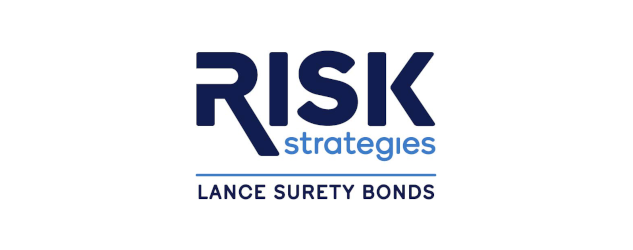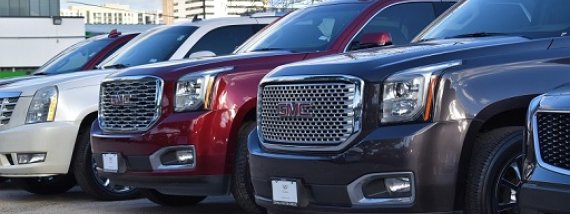Indiana Auto Dealer License Guide

If you want to buy, sell, lease, or wholesale vehicles in Indiana legally, you must obtain a dealer’s license from the Indiana Secretary of State (SOS) Auto Dealer Services Division. This license is mandatory for individuals or businesses planning to sell, offer for sale, or advertise for sale at least 12 motor vehicles within a 12-month period. Without a license, you may face legal penalties and restrictions on conducting vehicle sales.
Here’s a step-by-step guide to help you through the application process and ensure that your dealership meets all state requirements for operation:
**NEW:** Download our FREE e-book guide containing comprehensive information on how to start your own dealership, from getting licensed and bonded to securing financing and cars for your lot!
How to Get a Dealer License in Indiana
Step 1: Determine the Type of Indiana Dealer License You Need
Before applying for an Indiana auto dealer license, you must determine the specific license type that aligns with your business operations. The secretary of state's office issues licenses for the following dealer types:
- Auto Auction License – Required for businesses that facilitate the sale of motor vehicles through auctions.
- Automotive Salvage Recycler License – For businesses engaged in dismantling, salvaging, or recycling motor vehicles.
- Converter Manufacturer License – Needed for companies that modify or assemble vehicles before selling them.
- Dealer (New and Used) License – Required for businesses selling new and/or used motor vehicles to the public.
- Distributor License – For businesses distributing motor vehicles to licensed dealers.
- Manufacturer License – Required for companies that manufacture motor vehicles for sale in Indiana.
- Transfer Dealer License – For entities, such as financial institutions and insurance companies, transferring ownership of 12 or more vehicles within a 12-month period.
- Watercraft Dealer (New and Used) License – Required for businesses selling new or used boats and watercraft.
To ensure compliance, select the license that best fits your dealership's operations.
Step 2: Establish a Business Location
The state of Indiana requires all auto dealers to operate from an approved business location that meets specific state regulations. The business location serves as the primary site for conducting sales, maintaining records, and storing inventory. Failing to meet these requirements may result in application denial or license revocation. Minimum Business Location Requirements:
- The dealership must operate from a permanent, enclosed structure with at least 1,300 square feet of total space.
- Within this building, at least 100 square feet must be designated as office space, furnished appropriately, and equipped with functioning utilities.
- A permanent sign displaying the dealership’s name (as it appears on the license) must be installed.
- The sign must be clearly visible from a public roadway.
- The premises must include a display area capable of showcasing at least 10 vehicles for sale.
- The lot must be owned or leased by the dealer and located at the same address as the office.
- The display area should be well-lit during operational hours to ensure visibility and safety.
- The location must be easily accessible to the public and situated within Indiana.
- Dealers must maintain regular business hours, being open to the public for at least 30 hours per week during standard business hours. These hours must be clearly posted at the dealership entrance.
- The dealership location must comply with all local zoning regulations. A completed Zoning Affidavit (State Form 55936), signed by a local zoning official, is required to confirm compliance.
- The location must have a dedicated phone line and email for business purposes.
- The business location must be capable of receiving mail deliveries. If the area is not serviced by the U.S. Postal Service, appropriate accommodations must be made.
- Dealers must have a secure, organized space for maintaining business records, which must be available for state inspection.
- The premises should not house any secondary businesses and must not be located within a retail complex, such as a strip mall.
- Dealers may need to ensure their location meets accessibility requirements under the Americans with Disabilities Act (ADA).
Before a dealer license is issued, the Indiana Secretary of State’s office will conduct an on-site inspection of the business location to verify compliance with these requirements. Any violations or deficiencies must be corrected before approval.
Meeting these location requirements is a crucial step in obtaining and maintaining an Indiana auto dealer license. Ensuring compliance from the start will help avoid delays or penalties during the licensing process.
Step 3: Register Your Business
Before applying for an Indiana auto dealer license, you must legally register your business with the appropriate state and federal agencies. This ensures that your dealership operates as a legitimate entity and complies with tax and business regulations.
- Obtain a Federal Employer Identification Number (EIN) - The EIN is a unique number issued by the Internal Revenue Service (IRS) to identify your business for tax purposes.
- Register Your Business with the Indiana Secretary of State - Your dealership must be legally recognized as a business entity in Indiana. Common business structures include:
- Sole Proprietorship – Single-owner business with personal liability.
- Limited Liability Company (LLC) – Provides legal protection for personal assets.
- Corporation (Inc.) – Best for larger businesses with shareholders.
- Obtain a Sales Tax Permit from the Indiana Department of Revenue - Dealers must collect and remit sales tax on vehicle transactions. A Sales Tax Permit (Registered Retail Merchant Certificate) is required to legally collect sales tax from customers.
Step 4: Obtain a Dealer Surety Bond
To operate legally in Indiana, all auto dealers must obtain a $25,000 auto surety bond as part of their licensing requirements. A surety bond serves as a financial guarantee that the dealer will comply with state laws and ethical business practices. It protects consumers from fraudulent activities, contract violations, and financial loss due to dealer misconduct.
If a dealer engages in fraudulent activity, a claim can be filed against the bond. The surety company will investigate, and if valid, may compensate the claimant up to the full bond amount.
Bond costs (bond premium) typically range from 1% to 10% of the bond amount ($250 to $2,500), depending on factors such as credit score, financial history, and business experience. Some providers may also conduct a background check to assess risk.
Step 5: Obtain Garage Liability Insurance
Indiana requires auto dealers to carry Garage Liability Insurance to protect against claims resulting from accidents, injuries, or property damage involving dealership operations. This coverage applies to test drives, customer injuries on dealership property, and damage caused by dealership-owned vehicles.
Indiana law mandates that dealers maintain at least a minimum coverage of:
- $100,000 for bodily injury per person
- $300,000 for bodily injury per accident
- $50,000 for property damage
Step 6: Complete Pre-Licensing Training (If Required)
In Indiana, first-time used motor vehicle dealers are required to complete a pre-licensing training course approved by the state. This course is provided by the Indiana Independent Automobile Dealers Association (IIADA) and covers essential topics such as dealership operations, legal requirements, and compliance with state regulations. Upon successful completion, participants receive a Dealer Training Completion Certificate, which must be submitted with the dealer license application.
Step 7: Gather the Required Documents
Before submitting your Indiana auto dealer license application, you must gather and prepare all required supporting documents. Missing documents can delay approval or result in application rejection.
Required Documents for Submission:
- Completed Dealer License Application – Obtain and fill out the official Indiana Dealer License Application Form from the Indiana Secretary of State Auto Dealer Services Division.
- Zoning Affidavit (State Form 55936) – Signed by a local zoning official, confirming that the dealership location complies with local zoning laws.
- Dealer Surety Bond Certificate – Proof of a $25,000 surety bond, listing the dealership name exactly as registered.
- Garage Liability Insurance Policy – A copy of the insurance declaration page showing coverage that meets Indiana’s minimum requirements.
- Business Registration Documents
- Federal Employer Identification Number (EIN) – A copy of the IRS confirmation letter.
- Sales Tax Permit – Proof of a valid Registered Retail Merchant Certificate from the Indiana Department of Revenue.
- Pre-Licensing Training Certificate (if applicable) – Required for first-time used vehicle dealers in Indiana.
- Photographs of the Business Location – Provide images showing the office, business sign, display lot, and posted business hours to verify compliance with location requirements.
- Criminal Background Check (if applicable) – Certain applicants may need to submit a criminal history report as part of the screening process.
Step 8: Submit the Dealer License Application and Pay Required Fees
To complete your application, submit the required fees:
- Dealer License Fee: $30
- Dealer Plates (if needed): $45 for initial plates and $15 for any additional plates
For a complete fee schedule, consult the Fee Chart.
Once your payments and documents are ready, send your dealer license application to:
Office of the Indiana Secretary of State
Auto Dealer Services Division
302 W. Washington Street, Room E018
Indianapolis, IN 46204
FAQs on Indiana Auto Dealer License
How Can I Renew My Current Dealer License?
Both dealer licenses and dealer license plates expire annually and must be renewed to continue operating legally. You can submit your renewal up to 90 days in advance of your expiration date to avoid penalties. Most renewals can be completed online through INBiz.
How Many Cars Can I Sell in Indiana Without a License?
In Indiana, individuals are permitted to sell up to 12 vehicles within a 12-month period without obtaining a dealer's license. This allowance is designed for private sales of personally owned vehicles. Exceeding this limit is considered engaging in the business of vehicle sales, which requires obtaining the appropriate dealer license.
It's important to note that each vehicle sold must be registered under your name prior to the sale. Selling vehicles not registered to you or engaging in sales with the intent to profit may be interpreted as unlicensed dealing, which is subject to legal penalties.
Can I Get an Indiana Auto Dealer License Without a Lot?
In Indiana, you can sell vehicles without a lot if you have a wholesale dealer license, which allows sales only to other licensed dealers. While a display lot isn’t required, you must still maintain a dedicated office space.
Get a FREE Surety Bond Quote in Minutes
- Fast and Secure Application
- Money Back Guarantee
- Approval in Minutes
- Nationwide Coverage
Recommended Articles
- Fast and Secure Application
- Nationwide Coverage
- Approval in Minutes
- Money Back Guarantee
- Image

- Image

- Image

Lance Surety Bond Associates, Inc. is a surety bond agency based out of southeastern Pennsylvania that is able to write all surety bond types in all 50 states. We are dedicated to servicing all of our customers' surety bonding needs throughout the country and guarantee competitive rates, timely responses, and unparalleled customer service.









